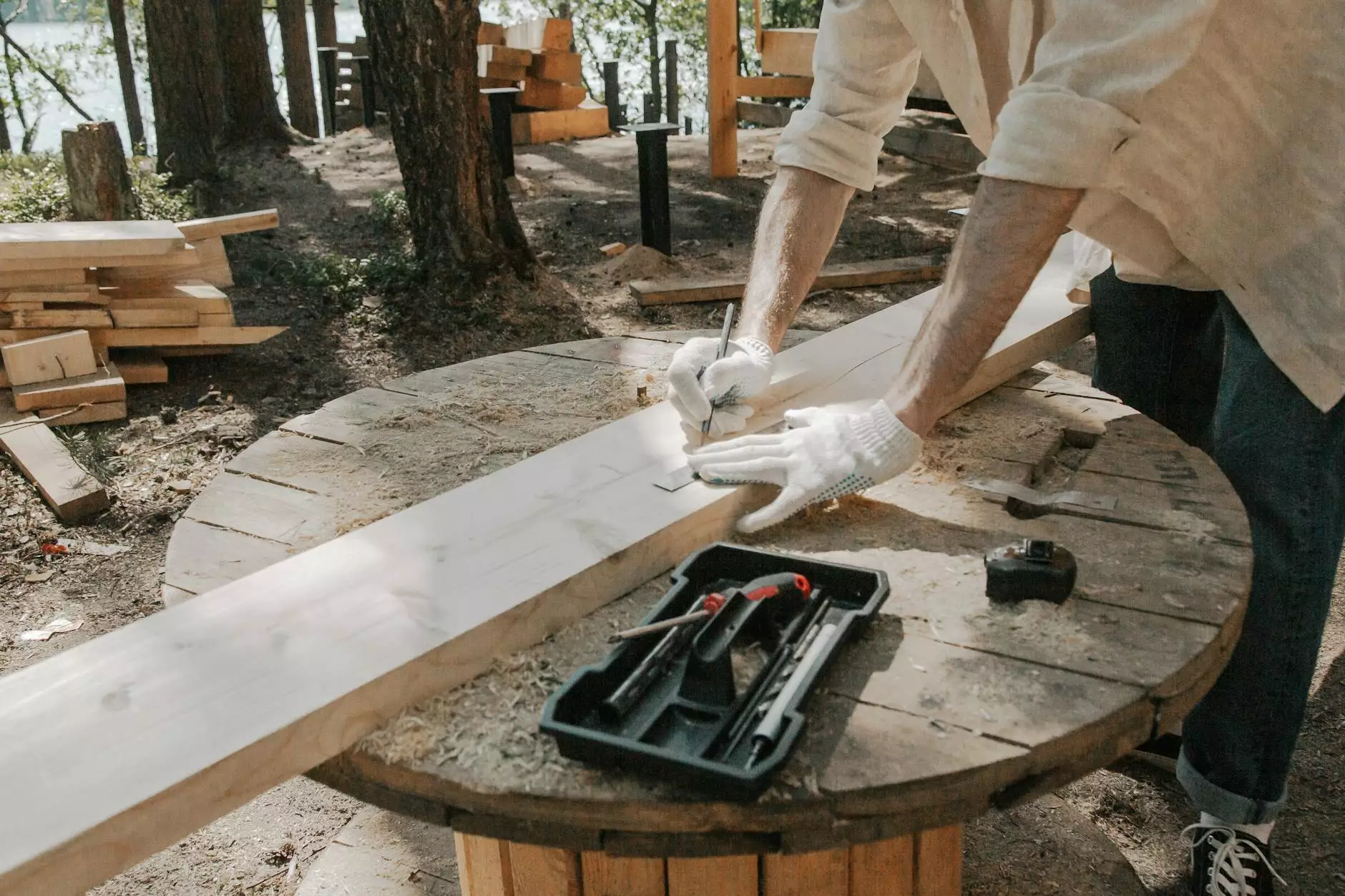The Ultimate Guide to Your Local Lumber Shop

For anyone interested in woodworking, home improvement, or simply in need of quality building materials, the local lumber shop is an invaluable resource. This guide will delve into the various aspects of a lumber shop, focusing on offerings, benefits, and tips for making the most out of your visits. Whether you’re a seasoned contractor or a DIY novice, understanding the world of lumber can greatly enhance your projects.
Understanding the Lumber Shop Landscape
A lumber shop is not just a store; it’s a community hub for builders, craftsmen, and hobbyists. These establishments typically specialize in selling various kinds of wood and related materials and often provide additional services that can be crucial for any project.
The Importance of Lumber Shops
Lumber shops play a pivotal role in the construction and woodworking industries. Here are several reasons why they are essential:
- Quality Selection: Lumber shops offer a wide variety of woods, including both softwoods like pine and hardwoods like oak and maple.
- Expert Knowledge: Staff at lumber shops often have extensive knowledge about wood types, their uses, and care, which can be beneficial for customers.
- Locally Sourced Products: Many lumber shops prioritize locally sourced timber, supporting local economies and sustainability.
- Custom Services: Some shops offer custom cutting, milling services, and even design consultations.
The Types of Lumber You Can Find
When you enter a lumber shop, you will encounter various types of lumber, each suitable for different applications. Understanding these types will help you make informed decisions for your projects.
Softwoods
Softwoods come from coniferous trees and are generally easier to work with when compared to hardwoods. Common types include:
- Pine: Ideal for home construction, furniture, and decorative projects due to its affordability and versatility.
- Cedar: Known for its resistance to rot, making it perfect for outdoor projects like decks and fences.
- Spruce: Often used for building structures due to its strength-to-weight ratio.
Hardwoods
Hardwoods are derived from deciduous trees and are typically denser and more durable. Some common hardwoods are:
- Oak: Famous for its strength and beauty, used in furniture and flooring.
- Maple: Hard and resilient, making it perfect for cabinetry and heavy-use surfaces.
- Cherry: Valued for its rich color and ability to age beautifully over time.
Firewood: A Special Section in Lumber Shops
Among the many products offered by a lumber shop, firewood represents a unique category. Firewood is not just about warmth; it's a staple for anyone who enjoys outdoor cooking or has a fireplace in their home.
Choosing Quality Firewood
When selecting firewood, consider the following aspects:
- Type of Wood: Hardwoods like oak and hickory burn longer and produce more heat than softwoods, which may ignite quicker but burn faster.
- Moisture Content: Look for seasoned firewood, which has a lower moisture content for efficient burning.
- Piece Size: Ensure the wood pieces are cut appropriately for your fireplace or fire pit.
Services Offered by Lumber Shops
Beyond selling wood, many lumber shops offer an array of services designed to assist customers in their projects.
Custom Milling and Cutting Services
Many lumber shops provide custom milling services, allowing customers to request specific thicknesses, widths, or lengths of lumber, tailored to their project needs. This service is particularly helpful for craftsmen who require precise dimensions.
Delivery Services
Some lumber shops also offer delivery options, which can save customers time and effort, especially when purchasing larger quantities of materials.
Workshops and Classes
To foster community engagement, many lumber shops conduct workshops on woodworking techniques, home improvement, and the proper use of tools. This not only enhances customer skills but also creates a loyal customer base.
Tips for Shopping at Your Local Lumber Shop
To make the most of your visits to a lumber shop, consider these helpful tips:
1. Do Your Research
Before heading to the shop, take some time to research the types of wood you may need for your project. Understanding the characteristics and uses of different woods will empower you to make better choices.
2. Bring a Project List
Having a detailed list of materials required for your project can streamline your shopping experience and ensure you do not forget any essential items.
3. Ask Questions
Don’t hesitate to seek advice from the knowledgeable staff. They can provide insights on your specific project needs and may suggest alternatives you hadn't considered.
4. Check for Specials
Many lumber shops have promotions or sales, especially on bulk purchases or seasonal items. Keeping an eye on such offers can significantly save you money.
Conclusion
A visit to your local lumber shop can be a rewarding experience, whether you are a seasoned remodeler or a DIY novice. With a plethora of materials and services available, along with expert guidance, you can find exactly what you need to bring your projects to life. Embrace the resources available to you, and watch your ideas transform into tangible creations!









